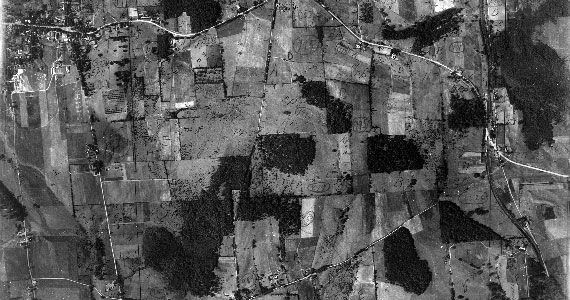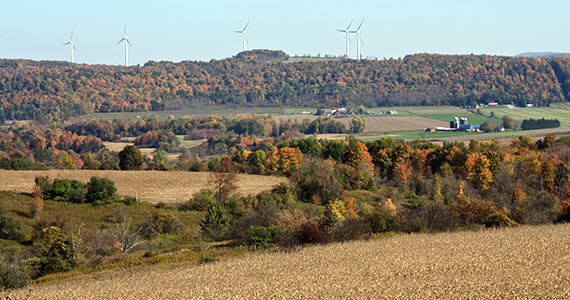A recently published academic paper by a Colgate research team raises questions about the theories surrounding forest change, with a particular focus on the prospects of sustainable land and forest use in the central New York region.
The paper, coauthored by Colgate geography professors Peter Klepeis and Peter Scull, Tara LaLonde ‘06, Nicole Svajlenka ’08, and Australian professor Nicholas Gill, was published in the journal Area. Klepeis discusses the research in a recent blog post in Geography Directions.
Most often, Klepeis points out, the news media focuses on deforestation and its negative consequences. Most of the clearing occurs in the tropics, and the resultant biodiversity loss, carbon dioxide emissions, and threats to local inhabitants are very important issues.
Klepeis says, though, that global trends in forest cover change hide regional differences. Many temperate and rich-country contexts have been experiencing forest recovery for decades. In the eastern United states, he says, there has been widespread natural forest regeneration since the 1800s.
The Colgate research team focused its research in the town of Eaton, which is just minutes from campus. The researchers analyzed aerial photographs and land-use history to evaluate changing forest cover there between 1936 and 2008.
They found a decline in the farming sector and changing life and livelihood goals within farming families led to 25.8 percent of the town reforesting, which they expected.
But Klepeis cites two new trends unearthed by the research:
“First, there is a pronounced increase in the percentage of forest recovering on prime agricultural soils, which holds the potential to diversify habitat and increase biodiversity. Prior to 1994, reforestation on high quality soils was rare.
“Second, alternative land uses and invasive species, such as the Emerald Ash Borer (Agrilus planipennis), represent possible new forms of forest disturbance. Landowners are starting to develop wind power and natural gas, and practice silviculture. Also, there is steady growth in amenity-oriented land use and rural residential development. These new dynamics challenge theories of forest change, and raise questions about the prospects of sustainable land and forest use in the region.”
The group’s research was funded by the university’s Summer Undergraduate Research program and Upstate Institute. The initial research started in 2005 as a collaboration between the Geography Department and Greg Owens, a senior forester at the New York State Department of Environmental Conservation. It served as the basis for LaLonde’s and Svajlenka’s honors theses.

